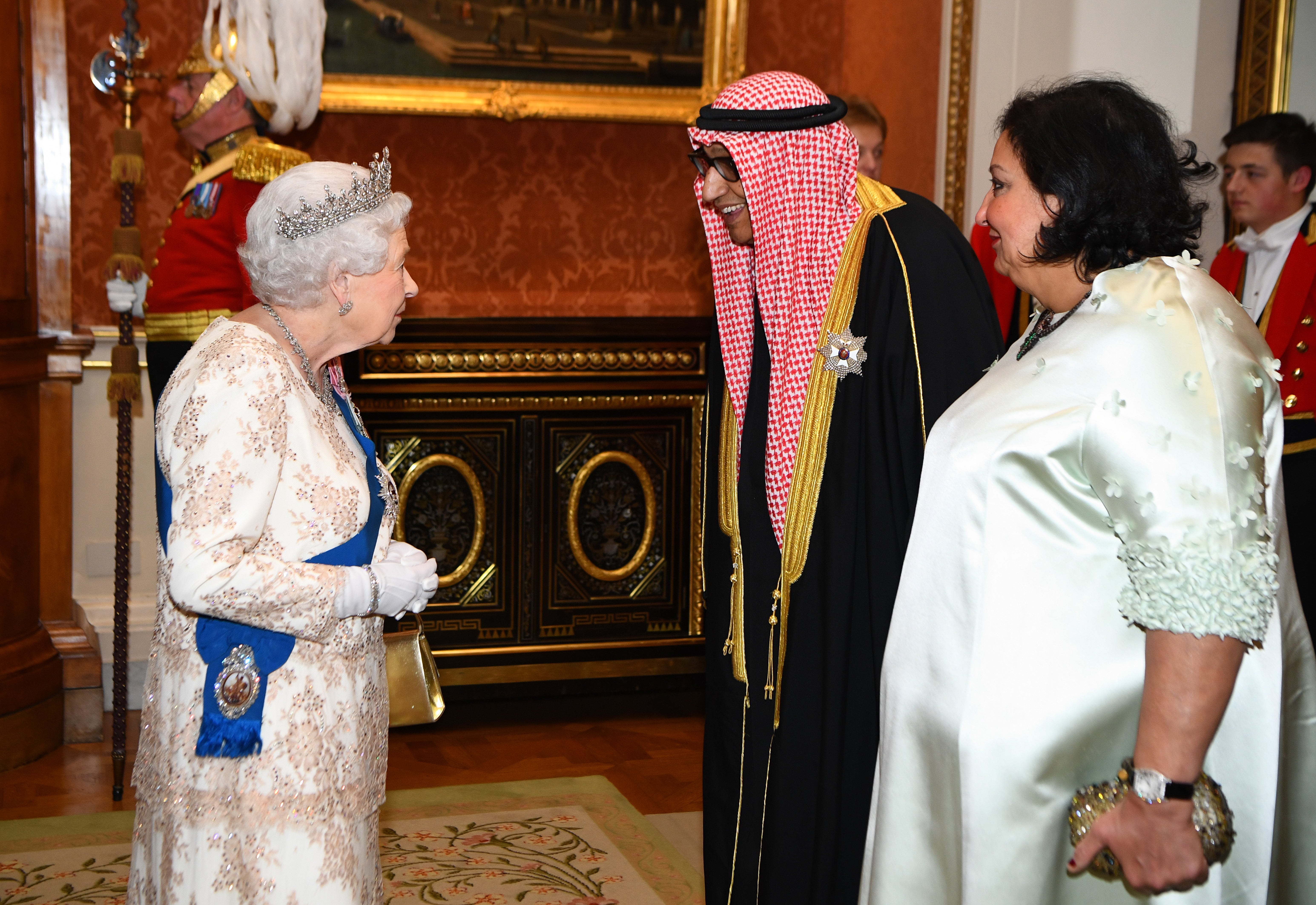Veteran Kuwaiti ambassador recalls three decades of memories with the Queen
Khaled Al-Duwaisan, 75, an ambassador of 30 years, spoke with the PA news agency from his home in Kuwait.

Your support helps us to tell the story
From reproductive rights to climate change to Big Tech, The Independent is on the ground when the story is developing. Whether it's investigating the financials of Elon Musk's pro-Trump PAC or producing our latest documentary, 'The A Word', which shines a light on the American women fighting for reproductive rights, we know how important it is to parse out the facts from the messaging.
At such a critical moment in US history, we need reporters on the ground. Your donation allows us to keep sending journalists to speak to both sides of the story.
The Independent is trusted by Americans across the entire political spectrum. And unlike many other quality news outlets, we choose not to lock Americans out of our reporting and analysis with paywalls. We believe quality journalism should be available to everyone, paid for by those who can afford it.
Your support makes all the difference.A veteran Kuwaiti diplomat has recalled his fondest memories with the Queen over three decades of formal friendship.
Khaled Abdulaziz Al-Duwaisan, 75, the longest-serving ambassador to Britain, said he loved the Queen for her energy, knowledge and sense of humour.
Speaking with the PA news agency from his home in Kuwait on Friday, Mr Al-Duwaisan said he met the monarch on more than 150 occasions, with the final time being for her Platinum Jubliee this summer.
Reflecting on this encounter, the recently-retired ambassador said: “I can’t believe that at this age, her mind, her body, her sense of humour – she was wonderful.
“On a personal level, she liked me. I love her of course.”
Mr Al-Duwaisan, who joined Kuwait’s Ministry of Foreign Affairs in 1970, recalled their first meeting in 1993 when he was just months into the job as a London-based ambassador.
Due to royal protocol, his diplomats had to ensure they never turned their back to the Queen, which involved them walking backwards while wearing a traditional men’s cloak, known as a Bisht.
Mr Al-Duwaisan said: “I had about seven diplomats with me, and all of them were wearing the robe – the big robe taller than them – because this is our system.
“I was afraid that if they go back they will fall, and it would be embarrassing.”
The veteran ambassador said that after some discussion, he found a way for the men to manoeuvre safely around the Queen. “She liked it,” he said.
I feel sad now to remember all this with Her Majesty the Queen, but I say to myself, this is life, she lived a good life, she lived a long life. Britain will not be the same as when she was in power.
Mr Al-Duwaisan was later invited for a dinner at Windsor Castle with his wife, where he sat beside the Queen.
“I will never forget that she has a system in the past, to invite the ambassador to stay in Windsor Castle, so I went with my wife at five o’clock at the reception and private dinner,” he said.
“I was on her right. So we talk about a lot of things, of course they told me not to talk about politics.
“We had a long conversation about her children, going to Kuwait – and the Kuwaitis who are coming to England.
“I said to her, that’s because the relation between our two countries is very close – very, very close.”
“She showed me a big sword given to King George V from the Sheikh Ahmed Al-Jaber, the father of the current emir,” he added.
“I feel sad now to remember all this with Her Majesty the Queen, but I say to myself, this is life, she lived a good life, she lived a long life.
“Britain will not be the same as when she was in power.”
In 1995, the Queen made Mr Al-Duwaisan an Honorary Knight Grand Cross of the Royal Victorian Order.
He became Dean of the Diplomatic Corps in 2003, a role which has seen him advise more than 750 newly-arrived heads of mission about diplomatic life in London.
Mr Al-Duwaisan said the Queen’s death has been felt deeply in Kuwait, with many official buildings bearing the British flag to mark her passing.
He said the monarch provided a sense of stability and fostered an important relationship between the UK and Kuwait during years of turmoil in the country, including through the Iraq invasion in 1990.
Britain sent its largest single deployment of troops since the Second World War to defend the nation, at around 35,000 servicemen and women.
Western powers also feared Iraq would invade Saudi Arabia and seize the region’s oil supplies.
Kuwait became a British protectorate in 1899, and in 1961 it gained independence.
Mr Al-Duwaisan met King Charles III on several occasions, including three times in Kuwait, and he believes “the future will be good” under his reign.